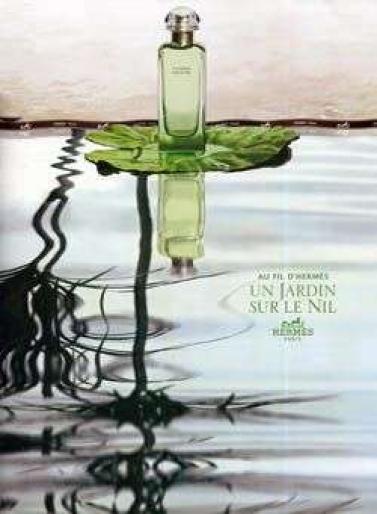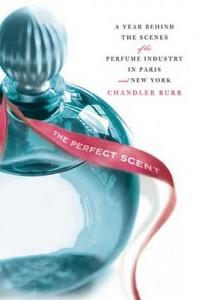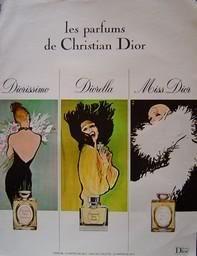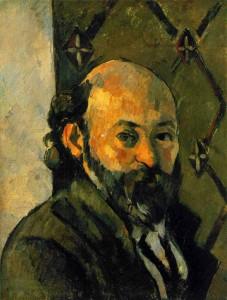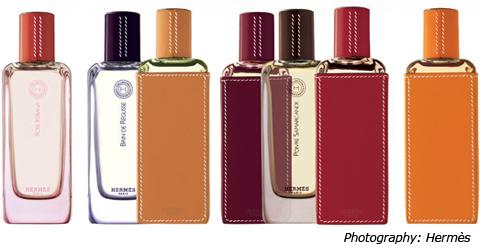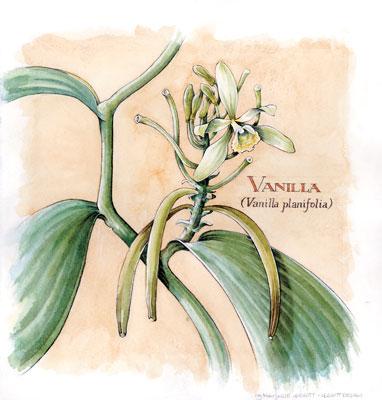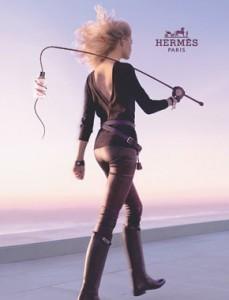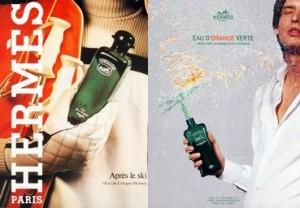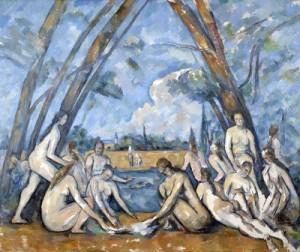I interviewed the iconic perfumer Jean-Claude Ellena, in 2009. When M. Ellena became the in-house perfumer for Hermès in 2004, Fragrance Critic and author of three books, Chandler Burr chronicled the creation of M. Ellena’s first collaboration with Hermès … Un Jardin Sur La Nil.
In his book The Perfect Scent, Chandler pulled the ‘cord ‘on the scented curtain and revealed the ‘noses’ that had been kept secret by the industry. Once doing that, the world of fragrance has never been the same. Perfumers are now rock stars, and we follow their every accord.
With the help of his friend of 32 yrs., Michel Roudnitska, owner of Art-et-Parfums ‘introduced me’ to and explained to me “that M. Ellena “is the modern-day perfumer who has best understood and follows a streamlined and creative approach initiated by the legendary Edmond Roudnitska (Diorella, Diorissimo, Rochas Femme (the pre -1989 formulation), Eau Sauvage and Editions de Parfums by Frederic Malle Le Parfum de Therese, and has furthered the “simplification and clarification of perfume formulas, creating truly innovative and fluent fragrant writing”.¹
This interview was pivotal in my career as a journalist; divided into three ‘acts’; it portrays M. Ellena as an iconic influencer of 21st century fragrance, the friend of Michel Roudnitska, student of Edmond Roudnitska and ultimately, provides glimpses into the life and ART of an extraordinary perfumer.
‘The Man’
Mr Ellena, please describe yourself in ten words or less
JCE: A quiet smiling man, who prefers to listen than to speak.
If you could dine with two dinner guests, alive, deceased, historical or fictional who would they be and why.
JCE: They would be friends, not famous people because I would be too impressed.
Your first olfactive memory?
JCE: Around four years old, in the kitchen, the smell of the cupboard hiding the cookies box.
Your muse?
JCE: Life
Does your creativity come always from within YOU, or has a spirit outside yourself, greater than yourself ever involve itself in your work?
JCE: From within me. I believe in humanity above all.
Your favourite food?
JCE: Truffle
An artist whose work fascinates you?
JCE: Cézanne
Most memorable book?
JCE: La Nouvelle Grille d’Henri Laborit (and the movie from this book: Mon Oncle d’Amérique directed by Alain Resnais)
Your birth sign?
JCE: Cat! (I just invented it) Note: M. Ellena is an Aries.
The last dream you can remember ?
JCE: Last night. ² It was about a lecture I was doing and for which I had difficulties.
Jean Claude Ellena “The Friend and Student”
The great perfumer Edmond Roudnitska was a mentor to you. Would you share a personal story about him that speaks to his true nature and to your friendship?
JCE: An anecdote could be a quarrel that I had with him. It was about the concept of the “Beau” (the Beautiful). For him it was a universal notion, for me a cultural notion. This universal conception is from a Platonic way of thinking. Mine is based upon the culture and even based on a generational view. We had tough discussions about that, speaking of philosophy, sociology
It was great!
Jean Claude Ellena: The Artist
Your favourite ingredients or raw materials?
Jean Claude Ellena: None. Materials are my words, the tools I have to tell a story.
The fragrance you dream of creating?
JCE: the perfume of the Wind
Which of your other 6 senses (taste, sight, sound, touch, and intuition) has the greatest influence on your work?
Jean Claude Ellena: touch, the closest sense to smell as it’s the most intimate.
***
Many of your compositions share the quality of transparency. What does that quality mean to you?
JCE: I do not cultivate mystery, complication. I prefer the clarity, the understanding. To give to understand it is to offer of the enjoyment.
Five years ago, you were known to a very narrow group, mostly in the industry. Today, with the impact of Chandler Burr’s³ recent book, groups like Sniffapalooza (a global consumer driven organization dedicated to fragrance and events) and the blogosphere, you are famous.
Did you ever think you would be known to such a wide circle of people and have groupies like a rock star, who follow your every creation?
JCE: No and it’s “out of me”. I’m simply happy that my works, my creations are the supports to discuss the perfumery.
Why is there a lack of great masculine being created in the past few years, although 78% of men wear fragrance?
JCE: I do not agree. Perfumes as my composition Terre d’ Hermes, Fahrenheit from Dior, Grey Flannel de Geoffrey Beene or Pour Monsieur from Chanel are beautiful perfumes. On the other hand I invite men to use perfumes said feminine and vice versa, the choice will be bigger and this might open the debate.
Some have said that you foreshadowed the trend towards ‘unisex’ fragrances with Bvlgari Eau Parfumée au thé vert. What are your thoughts about unisex fragrances in general? Are they an additional genre or just an excuse to cover the fact that there are so few new ideas for masculine?
Jean Claude Ellena: I do not use the wording “unisex”, I prefer to say: to be shared. Actually, as I tend to conceive the perfume as an art, it’s an obviousness that perfumes are for everybody and for each of us, as all other artistic expressions. The distinction masculine / feminine is economic, not creative. The perfumery history and the culture of certain countries show well that perfumes do not have a sexual classification.
The idea is not to wear the perfume of his wife but to be curious, to ignore the social codes, the cultural codes which are mainly based on a commercial value. Then to be open minded which mean being able to wear women’s fragrances if a man like one.
Hermès is one of the greatest brands of all time. Some say you are one of the greatest perfumers of all time. Does one sacrifice a bit for the other?
JCE: No, it’s a genuine encounter, and I’m here to express Hermès
Each Hermessence seems to be an etude of a single ingredient. For example Brin de Réglisse is an etude of lavender. The Hermessence line seems built around the notion of reinventing an ingredient and presenting it in a thought provoking interpretation. Which raw material has presented the most challenge and why?
JCE: Each is a challenge, a splendid challenge. But to answer your question, I would say Paprika Brasil because I tried to make perceptible (emotionally speaking) the sensation of burn of the hot piment on the tongue, which is not an olfactive sensation actually.
For your latest Hermessence Vanille Galante, I have a number of questions:
What story are you telling with Vanille Galante? And how does the word “Galante” using the feminine instead of the masculine relate to this story?
JCE: Another point of view, another glance on vanilla. The word “galante” uses the feminine because in French grammar vanilla is feminine, then galante as to be feminine as well, meaning subtle, delicate.
What image or experience was your point of departure?
JCE: A new absolute of vanilla initially made for the aromas I’ve made transform for perfumery use. But this absolute was finally only a pretext for an exercise in style.
I would love to know more about the salicylates in the base of Vanille Galante; as far as I’ve been able to puzzle it out, they don’t seem to be aroma chemicals as much as structural elements. Is this correct? If so, how do they transform the other notes?
JCE: Salicylates are a family of material that is indeed not only creating the fragrance but also contributes to its structure. I consider that a structuring product is a raw material which moves the purpose of the perfume. Raw materials such as patchouly, clove, coumarine, phenyl ethylique alcohol are raw materials that structure a perfume.
Please share the background on your updating of Kelly Caleche from the original Caleche formulation. As a follow up, is it unusual for Hermes to create what some in the industry call ‘flankers’, or updates on a fragrance?
.
JCE: I respect Hermès customers and our perfumes, so for me it’s impossible to only increase the concentration to create a Pure Perfume.
These are not “flankers” but a Hermès creative approach, a creative way to see the exercise from Eau de Toilette to Pure Perfume as a genuine creation that goes beyond a technical or performance work. Actually, all my works are olfactive variations as they are creations in their own right, not a technical adaptation. It was actually the same in the past at Hermès, for 24, Faubourg for example whose Eau de Toilette is subtly different from the Eau de Parfum
So for the Kelly Calèche Pure Perfume, I wanted to stress the carnal, sensual expression of the original theme, and this is not only a matter of concentration but a matter of formula as well.
You have composed a trio of new fragrances that I previewed has just been released as of April 30, 2009. Please share with us their raison d’etre?
JCE: More than new fragrances, the Hermès Colognes collection actually invest a new territory of olfactive expression: the Cologne (not the American way to describe men’s perfume).
The Colognes territory at Hermès has already been inaugurated with Eau d’orange verte, created by Françoise Caron in 1979, I’ve added this year 2 new creations Eau de pamplemousse rose and Eau de gentiane blanche that create the collection and expand the territory.
Eau de pamplemousse rose is not about “pink grapefruit” but about grapefruit and rose. I like this idea to play with the smells and with the words. This Cologne is a contemporary ‘classic’ because with a main citrus basis.
The second one, Eau de gentiane blanche, is conceived as a counterpart of the Cologne style at it expresses the idea of the freshness and “clean” not through citrus but through the white musk, that converted in a new symbol of freshness (so the gentian is called “white” (“blanche” in French) because of the white musk, like a play on words.
The idea was born with a gentian absolute and the iris (to note that the gentian is used for the first time in a perfume). With those two roots, the first one with its smell of root, both bitter (I like the bitter) and darkly fresh, the second for its matt powder effect, it soapy smell which is the link with the white musk that I’ve added as the third main note. With those two different Colognes, I wanted to play with the codes of the “freshness” from the 20th and 21st centuries.
Your quote from the New York Times: “When I write a perfume, the scents are the words,” he [JCE] said. “And with these words I construct a story. There is breathing, and there are transitions, just as in sentences. Perfume, first of all, is a mental construction.” Tell us more about fragrance as a lingua franca.
JCE: The idea that the smells are words, my words to write (this verb is important for me) explains my way of thinking the perfume. I believe that the perfume is a cultural language, not universal as can be the music today. It is necessary to learn the smell to understand the perfume. We can like without understanding but it is to do without certain enjoyments.
I want my olfactive language to be harmonious, pleasant to ‘listen to’ because it’s moderate, and doesn’t support the concept of noise and shouting. In a way, it’s the very French way of literature for statement of love; it’s not just a chance that French is the language for love.
¹ quote by Mr. Michel Roudnitska
² the interview was conducted on March 29, 2009
³ The Perfect Scent: A Year Inside the Perfume Industry in Paris and New York by Chandler Burr.
– Michelyn Camen, Editor-in Chief
Editor’s Note: Since the time of this interview, M. Ellena has created one more fragrance, (March 2010). Voyage d’ Hermès reviewed by Managing Editor, Mark Benke

